Pressure to win, pressure not to lose, pressure to perform for the team, pressure to perform for the coach…pressure from the coach. Pressure to gain world ranking points, to win prize money, to qualify for the Olympics, the World Champs. Pressure from sponsors, pressure from the media. What if I win, what if I lose?
By Tjitte Weistra, Badzine Columnist. Photos: Badmintonphoto
It’s all about pressure or better said, it is all about how you manage or cope with pressure. Those who master dealing with pressure will have a crucial advantage. The kind of pressure I would like to focus on in this article is the pressure players feel – or don’t feel – from their coaches.
“You do realise that if you lose this match, you will NOT be picked for the World Championships.”
So I was told by my coach back in 2001, one minute before I was to go on for my second round match during the Swiss Open, the last tournament before the selection of the Dutch team for the world champs in Seville was to be announced. I doubt that many of you have worse examples of what NOT to say to a player just before they go on court but feel free to challenge that thought.
You won’t be surprised that this comment had an enormous negative impact on my performance during that game because it came so unexpectedly and so close before I had to start the actual game that there was hardly any time to process the implications of that comment. The irony of it all was that despite a terrible loss in that match I got named to the Worlds team the following Monday.
The fact is that as coaches we can have an enormous impact on players’ ability to perform just by the words we choose and the body language we adapt when sitting behind the court. One reason why players are under pressure is that they will want to perform well for their coach, whether the relationship between player and coach is good or not. If it is good, then it is to honour the coach’s hard work, trust and support. If it is not good, it is to show the coach that he/she is wrong about his/her opinion of you as a player. So how can we, as coaches, take away some of the pressures players have to deal with during tournaments and matches?
The key to helping players manage pressure is to give them a clear focus or task during their games and to not allow them to “wander off”. A task which is aimed at applying the right tactic throughout the game, not aimed at the end result or performance. This focus or task needs to be clear and key words need to be agreed upon to let the player know that they are on task or to “bring them back” to the game plan. Coaches should avoid any negative body language or facial expressions behind the court.
This can be hard when as a coach you can get so emotionally involved with the performance of your players. There can be exceptions to the “rule” in situations where players need to be “woken up” from negative behaviour or performance when nothing else (positive reinforcement) seems to be working. In these cases, “shocking” a player with a sudden, different approach could work but one must be very careful in using that approach as it could easily make things much worse. You may remember the Russian volleyball coach Nikolay Karpol, famous for shouting and swearing at players and even slapping one of them during an Olympic final (Youtube has some interesting material on this former national coach).
As coaches, we need to try and not make the overly obvious statement before or during matches. Telling a player that he/she is expected to win because his/her opponent is not that good or because the team needs that specific match to be won is poor coaching. All players know when they should be winning or what is expected of them. Reminding them is not going to make any difference.
What they need from a coach is the feeling that you believe in them and to be given the confidence to perform well. Your goal as a coach would be to put that confidence and belief you have in your player across without having to say a single word. That quiet and simple nod, the slap on the back, the showing of a strong fist, the high five is all that is required when the homework has been done, when the tactic is set and the match has been called…
![COACH’S NOTEBOOK – You’ve got nothing to lose…so DON’T!!! Pressure to win, pressure not to lose, pressure to perform for the team, pressure to perform for the coach…pressure from the coach. Pressure to gain world ranking points, to win […]](http://www.badzine.net/wp-content/uploads/Newsflash-thumbnail.png)
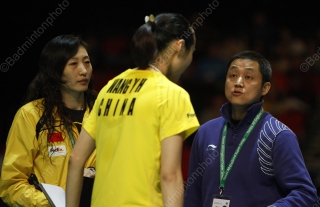
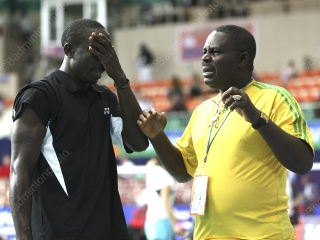
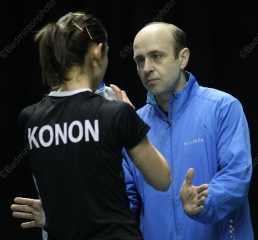
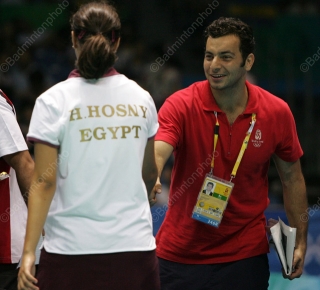
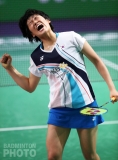
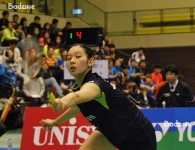
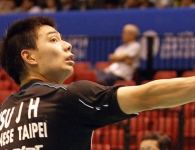
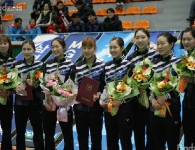
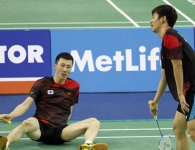
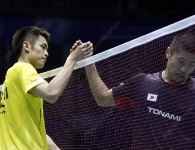
Leave a Reply